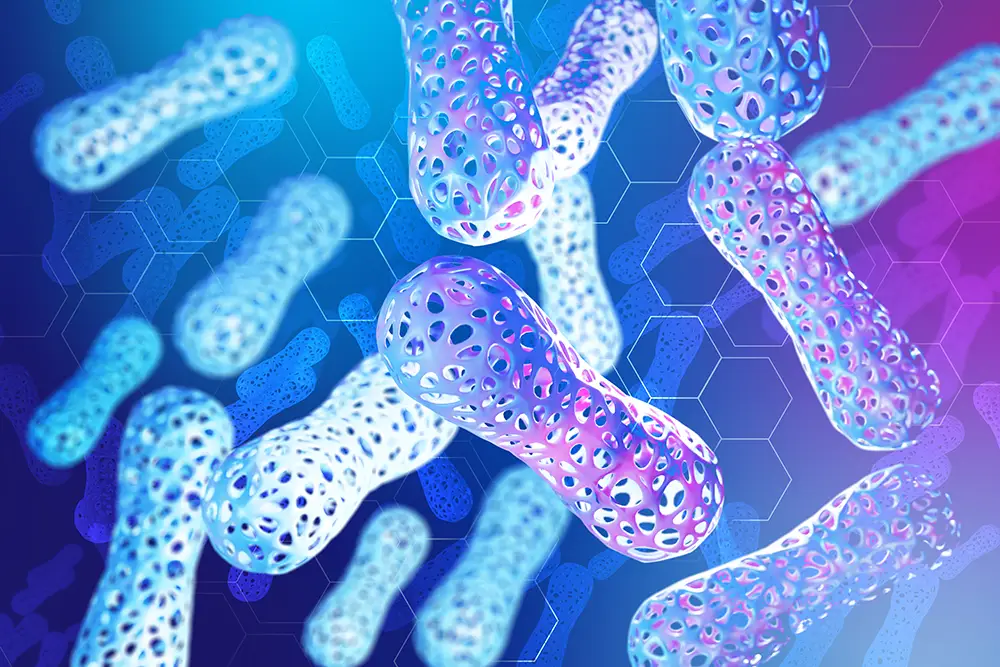
Why Buying from Authorised Channels Matters: A Message from Wassen International
In recent months, we have received questions from customers and healthcare professionals regarding unusually low-priced Wassen products appearing online and

When it comes to bacteria, most people’s first reaction is that it is bad for your health. However, did you know that not all kinds of bacteria are bad for you?
Our bodies are wonderfully complex, and inside our guts is a whole ecology of “germs” that greatly influence our health. The “good” ones are called probiotics, prebiotics, and psychobiotics, and in this article, we are discussing what they do for our bodies and why it’s important to keep them replenished and thriving:
In our digestive systems, probiotics live in complex communities of microorganisms in what is almost a whole other organ when it comes to helping our metabolism. Known as the gut flora or microflora, they are made of live bacteria responsible for regulating our digestion and providing us with vital vitamins and minerals. The “good” bacteria in the gut flora are called probiotics.
Probiotics have different strains (1), with Lactobacillus and Bifidobacterium as the two main ones. We find them when we eat probiotic foods like yoghurt and kimchi. However, it’s also possible to lose the balance of good bacteria when we have to take antibiotics. This can lead to diarrhea, irritable bowel syndrome, or other stomach-related illnesses.
But beyond helping us with digestion, probiotics also help lower cholesterol, enhance our immune systems, facilitate weight loss, and even improve skin against disorders and allergies (2). Making sure that we have the right balance of probiotics in our gut flora means that we are stronger against diseases and we are getting the right nourishment.
In order for probiotics to thrive and do its job, it needs prebiotics. Prebiotics are mostly fibre that human beings cannot digest, and they serve as the probiotics’ food. (3)
Because the gut flora is heavily reliant on our diets, it’s important that we feed the right kind of bacteria in our digestive systems. High-sugar and high-fat diets tend to be more beneficial to the “bad” bacteria, causing them to tip over the balance of the gut flora and overgrow. This can lead to obesity, higher risk of stroke and heart attack, and even cancer. (4)
Studies have shown that depression and other mental health issues may be connected to the proliferation of bad bacteria in the gut. In a study published in Trends In Neurosciences in 2016 (5), the idea of psychobiotics is expanded to include prebiotics, as opposed to just probiotics, as responsible for positively manipulating moods and alleviating depression, easing stress-related impact and managing insomnia.
More importantly, a study conducted at the National Yang-Ming University in Taiwan has identified a particular psychobiotic strain that has demonstrated an increase in the production of dopamine and serotonin levels. Psychobiotic PS128 is found to bridge the communication in our gut-axis better, allowing us to cope with stress by triggering a higher production of dopamine and serotonin, also known as the “happy” hormones. (6)
Psychobiotics aid in controlling the hormones in our brains that deal directly with moods and mental health. It helps in concentration and memory retention, as well as in promoting sleep and proper rest.
Synbiotics can be easily found in many food sources, though our fast-paced modern lifestyle sometimes does not account for the right amount in favour of quick, easily accessible but inevitably less nutritious food. Fulfil the right ratio of synbiotics in your diet by taking supplements that focus on your body and lifestyle needs.
To improve digestion and boost overall health, ActivKids Synbiotics makes for the easiest-to-take synbiotic vitamins. These convenient vitamins come in yummy bear form with three flavours: vanilla, orange and strawberry. Each yummy bear is filled with important prebiotic and probiotic strains that help improve digestion and immunity.
For those looking for clinically proven synbiotics, Multibiotics Active and Multibiotics Mind provide synbiotics with the Psychobiotic PS128 that you need to perform tasks better and improve mental health tenacity. Multibiotics Active is also supported with added Metabolic biotic K21 which helps fight inflammation, daytime fatigue and fat accumulation. At the same time, Multibiotics Mind contains Phosphatidylserine which helps improve memory and boosts concentration.
Shop now for your synbiotic and other supplement needs at wellbeingsg.com.
Probiotics: What You Need To Know. (2019, August). Retrieved August 24, 2020, from https://www.nccih.nih.gov/health/probiotics-what-you-need-to-know
Gunnars, K. (2018, November 13). Probiotics 101: A Simple Beginner’s Guide. Retrieved August 24, 2020, from https://www.healthline.com/nutrition/probiotics-101
Lewis, S. (2017, June 03). Probiotics and Prebiotics: What’s the Difference? Retrieved August 24, 2020, from https://www.healthline.com/nutrition/probiotics-and-prebiotics
Park, S. H., Kangwan, N., Park, J. M., Kim, E. H., & Hahm, K. B. (2013). Non-microbial approach for Helicobacter pylori as faster track to prevent gastric cancer than simple eradication. World journal of gastroenterology, 19(47), 8986–8995. https://doi.org/10.3748/wjg.v19.i47.8986
Sarkar, A., Lehto, S. M., Harty, S., Dinan, T. G., Cryan, J. F., & Burnet, P. (2016). Psychobiotics and the Manipulation of Bacteria-Gut-Brain Signals. Trends in neurosciences, 39(11), 763–781. https://doi.org/10.1016/j.tins.2016.09.002
Liu, W. , Chuang, H. , Huang, Y. , Wu, C. , Chou, G. , Wang, S. , & Tsai, Y. (2015). Alteration of behavior and monoamine levels attributable to Lactobacillus plantarum PS128 in germ-free mice. Behavioural Brain Research, 298 . doi: 10.1016/j.bbr.2015.10.046

In recent months, we have received questions from customers and healthcare professionals regarding unusually low-priced Wassen products appearing online and

Introduction: Anxiety, Avocado Toast, and the Gut-Brain Connection As a millennial, stress and anxiety have always been familiar companions. Balancing

Enjoy free shipping when you spend $60 or more on your order.
Enter Voucher Code: firstorderdiscount